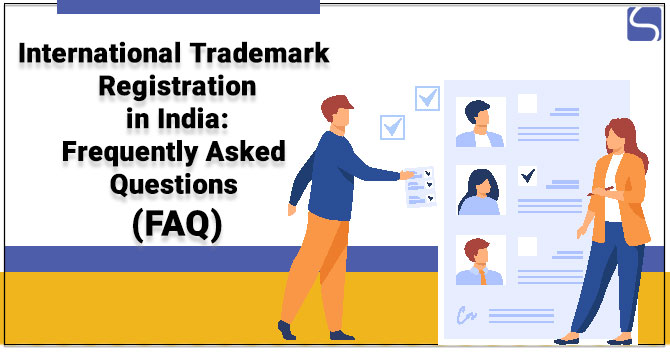IP Strategies for Tech Start-ups – A Complete Guide

Karan Singh | Updated: Aug 07, 2021 | Category: Intellectual Property
A start-up is not everyone cup of tea; people behind successful start-ups face lots of difficulties and hardships, mostly are finance-related problems. So if anyone is passionate about their work and wishes to start a start-up, then it requires more & more effort and patience because a start-up does not instantly earn you money. There are also many examples where people give their 100% efforts, but they didn’t succeed because he or she is not informed of the proper plans and IP strategies for tech start-ups. The author, via this blog, intends to deliver information about the IP strategies for tech start-ups and this blog of information regarding Intellection Properties (IPs) that will prove beneficial for someone thinking about a tech start-up.
Table of Contents
Tech Start-ups: Meaning
A start-up company is a word used to explain a business model that is aimed at finding an extensible and repeatable model. A tech start-up is a company that intends to bring technology products or services to the market. Such companies are usually focused on a particular industry or product area. During the dot com (.com) bubble that is when a vast number of dot com (.com) companies were founded, the term is used to refer to entities that were already established but were still in their initial phases of development and growth. Because of this background, many people consider start-ups as only tech companies or entities. But, as technology becomes more common, the essence of start-ups is more about development, growth, and innovation. However, it is also necessary to know all the IP strategies for tech start-ups because it will protect your tech start-ups, and now we are going to discuss the importance of IP protection and IP strategies for tech start-ups.
Why is IP Protection Necessary for Tech Start-ups?
Many start-ups cannot afford to risk losing their Intellectual Property Rights (IPR). Getting essential Intellectual Property protection does not require an enormous sum of money or an attorneys’ team. To get IP protection, small legal research is required with prescribed fees which are not too expensive, but the advantages are vast.
Your Intellectual Property Rights are protected by formal registration (Such as Copyright Registration, Trademark Registration, Patent Registration, etc.). This protection can aid you to avoid getting sued in the future. When you get ownership of a Patent or Copyright, the assumption is that the property is yours. When someone else violates your intellectual property, the courts will believe that your Intellectual Property is yours unless the other party proves otherwise. Getting an Intellectual Property Rights owner is an essential step in safeguarding yourself from violation suits.
Getting IP strategies for tech start-ups from costly infringement lawsuits later. The key to competitive benefit is IP; for instance, if you safeguard your invention with a Patent, then no one can produce or make a similar or identical product without your consent. This is the process of getting & safeguarding IP that can be used to benefit the marketplace by creating your own picture. If your start-up gets into a unique idea of hardware/software that is ready for commercial use & has not safeguarded it yet. Then your whole business could be in danger as Intellectual Property Protection gives protection and stability for investors.
IP Strategies for Tech Start-ups to Protect Tech Start-ups

An IP issue is just one of the many factors that a start-up will face when it comes to commencing a technology company. There are a number of problems that intellectual property can avoid when it comes to getting the product to the market before someone else does. Safeguarding Intellectual Property can help you get the most out of it. Following are some IP strategies for Tech Start-ups which can use to protect their interest and their start-ups.
- Estimate your Core Assets & Decide IP Protection you Require – Start-ups are prone to lose their IPRS for their dedication & hard work, as many of them hesitate to invest in IP protection. Entities should estimate their core assets & think to themselves if they should or should not safeguard their IP. Some cost-effective & simple measures can aid minimise the anxiety of safeguarding core assets of your company.
Many companies or entities believe that Patent Registration is the best way to safeguard them. But, it is often not the best way to safeguard their IP. Instead, they must consider other types of Intellectual Properties like Copyrights, Trademarks, Cyber Security Policies, and Trade Secrets. In case someone does not identify what type of protection or IP strategies for tech start-ups, then one should consider a lawyer or someone else who has good experience & knowledge about IP.
- Don’t Let Others Claim Ownership of Your IP or Your Company – A co-founder Agreement is essential, and it can aid you to avoid making many mistakes down the road, and it can also aid in preserving the connection. This informality often leads to individuals submitting funding applications together, which can be very confusing & uncomfortable for Co-Founders. Once you become a Co-Founder, you have to accept with the terms of your relationship with them. Doing the same can cause problems down the road. Having a Co-Founder Agreement is essential. It sets out the terms of your connection with one of your partners. A Mutual Agreement with C0-Founders is vital.
Always remember not to share information like the company’s stake or any concept that might bring any damage to you and your company. Keep records of all the ideas & discussions from where they came from to prevent future conflicts. If something alters, ensure to communicate clearly in writing what you would like to share with them. This will help avoid making a mistake & deterioration their idea. If your idea or concept is worth a billion dollars, then it is cheaper & more cost-effective resolving these types of problems beforehand than filing for an IPO or sell the company.
- Getting Contributors to allot their IP Rights to the Company – Many parties may be involved in company formation. So the parties involved may give something or the other. A company should get the Intellectual Property[1] assigned to them via a contract to use them without obstruction. The owner of IPRs holds exclusive rights until the contract has been terminated.
A written agreement is vital for ensuring that all rights & IPs are allotted to a company. Setting up the ownership of the IPRs of a start-up is vital. Doing so will permit the start-up to take benefit of the potential of the IP market. Any IP created before the company formation should be transferred to the corporation in exchange for shares or consideration based on mutual understanding. All employees must agree to the terms of the Confidentiality & Invention Agreement, which gets the assignment of IP as an employment condition. Independent consultants/contractors should also sign an agreement stating their obligation to allocate their IP to the company.
An agreement that says the company’s rights over discoveries and inventions is a must. As well as a Non-Disclosure Agreement (NDA) is required for anything that relates to any invention, discoveries, or ideas.
Conclusion
After discussing the vital IP strategies for tech start-ups, it is clear that it is vital to know all the IP strategies for tech start-ups before starting the tech start-ups. However, tech start-ups are for only those who have a lot of investment and a lot of experience. In India, there are many excellent minds that think of tech start-ups but lack financially. At many times individuals or companies trick people who come up with great ideas for their start-up.
Read our article:Benefits of Intellectual Property Rights in the Current Era














